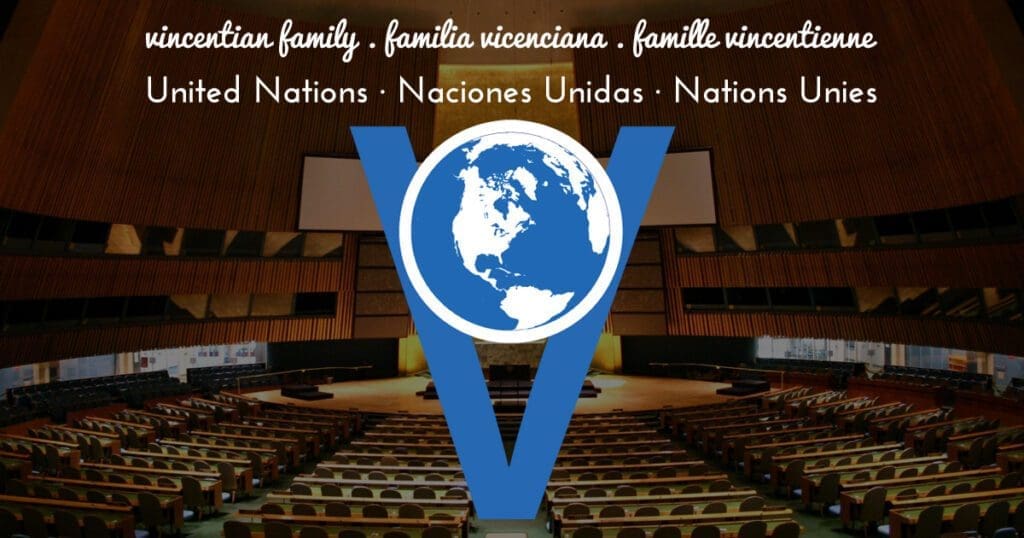
We work in hope at the UN.
We hope the ambassadors of the Member States listen to the concerns we raise about the major issues humankind faces today.
The countries’ ambassadors own the UN. They are the UN. Not much can happen without them. So we hope they take our ideas and recommendations seriously, and solidify their words and documents of agreement into tangible commitments. We hope they then push their governments to fulfill those commitments, putting the Common Good ahead of national self-interests.
And we hope the complex and often irritatingly slow UN process allows adoption of measures aligned with the implementation of the Sustainable Development Goals and the “leave no one behind” mantra.
After all, NGOs, especially those representing religious congregations, do not pursue the narrower interests of a particular country but those of the poor and suffering everywhere, concerns for People and the Planet, concerns for the elusive Common Good.
Let’s take a recent example. The Vincentian Family of five NGOs, with initial inspiration from the Famvin Homeless Alliance and with significant ongoing support from other like-minded colleagues, labored since 2017 to have the UN declare homelessness as a stand-alone issue that must be addressed worldwide, instead of lumping it in with other aspects of poverty. Following many rounds of discussion and countless edits, success came last month as our resolution passed the all-important third committee of review. A four year effort!
Now comes the critical work: making the resolution meaningful within the calendar and processes of the UN, hopefully—there’s that word again—and in shaping the national policies of many nations. After all, as Pope Francis reminds us, reality is more important than theory.
It also points to the need to change ourselves, our perspectives and ways of thinking, leading us to become systems thinkers, seeing the connections among the social issues keeping people poor and how by addressing one issue—like homelessness– we begin to heal other connected issues as well, like health, education, employment, etc.
Vincent de Paul worked in hope by following what he discerned as God’s Providence and by his own careful planning as his extraordinary charitable efforts expanded to meet the growing numbers of people in need.
Many beautiful things have been said about hope. One Christian leader says “Hope is believing in spite of the evidence and then watching the evidence change”
(Jim Wallis). There’s a Spanish saying that hope is the last to die.
And it’s a timey moment to think about hope. At this writing the great Desmond Tutu has died. South African cleric and Nobel Peace Prize laurate, he called himself “a prisoner of hope” as he worked tirelessly to abolish apartheid.
But maybe there’s more going on than merely hoping. E.B. White observes his wife’s final days. She knew she did not have long, yet there she was in the garden busily burying bulbs in the black earth “under those dark skies in the dying October, calmly plotting the resurrection.”
May all of our Vincentian ministries watch the evidence change as we plant seeds of resurrection!
Jim Claffey
NGO representative of the CM to the UN
www.congregationofthemssion-un-ngo.com







Very movingly written. Thanks….